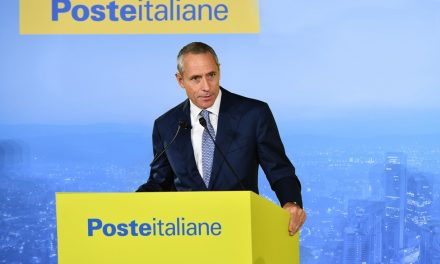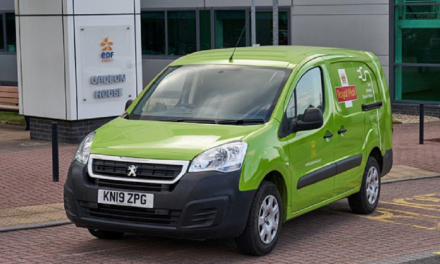
The Allan Leighton method of management
Allan Leighton is never far from the headlines. As the man charged with turning round the loss-making Royal Mail, he has frequent robust exchanges over competition with Postcomm, the regulator. The former chief executive of Asda /Wal-Mart is also involved in the prospective battle for Safeway as adviser to Philip Green, the entrepreneur who owns BHS.
In the eyes of the government, the Royal Mail chairman is the ideal boss. Britain needs more "really good managers" like him, according to Patricia Hewitt, trade and industry secretary.
Mr Leighton, who is one year into a three-year renewal plan at Royal Mail, holds nine other directorships and has no plans to give any up in the wake of the government-commissioned Higgs report, saying this is a matter for shareholders. He is chairman of BHS, Cannons, Lastminute.com, Wilson Connolly and the Race for Opportunity campaign. He is seen as the power-broker at Leeds United football club, where he is deputy chairman. He is a non-executive director of BSkyB, Dyson and George Weston. He also has a business advice website, www.going-plural.com.
Mr Leighton, who turns 50 in April, says the biggest influence on his career was his 18 years at Mars, where he learned the importance of talking directly to employees and customers. He is married with three grown-up children.
I probably manage things differently from most people. Everybody I talk to always (asks): "How do you manage your time? How do you go to meetings?" The most important thing about meetings is not having very many of them. I haven't been to many meetings where anything constructive has come out.
I don't manage time, I manage issues. I believe very strongly that if you lead companies, you have to be very visible. I've never been in a head office yet that takes any money. All the money is taken somewhere else, all the service is provided somewhere else, and you've got to be where it is.
The other day, I was working with a postman who said to me that to put mail through a letterbox you need it to come with large envelopes at the bottom so you can fold them round the small ones. We're not getting our machines to sort like that. It shows that you can put in a load of automation that you think is very efficient but all it's doing is passing the inefficiency down the line. It's blindingly obvious, but I'd never have picked that up if I hadn't spoken to that guy.
I get 300-400 e-mails a week from postmen and women and people in the company. Sometimes I phone them when I'm in the car. That's a great use of what others think is dead time. You've got to be accessible, but in control. I have my mobile but I never have it switched on.
I've always been in companies where I've had to manage thousands of people. I don't manage the top management team. I think I'm responsible for everybody.
You can build on your strengths, but all you can do about your weaknesses is be wary of them. I sometimes get impatient. Because I listen so much at grassroots level, sometimes I don't listen as well at the top end.
People think I'm the Scarlet Pimpernel because I'm all over the place. I'm out on the road early in the morning, any time between 6am and 6.30am, and I probably don't get home much before 8pm. I'm very organised about travelling. There isn't a post office, a delivery office, a mail centre, a building site, a retail shop, a Cannons leisure centre that I don't pass. Sometimes you only have to stick your head round the door for 10 minutes (and ask): "How are you doing, what's going on, what are the issues?"
Ordinary people are very important. They are the mass and if you don't understand that, you're missing out.
I've always been energetic. I go home at 8pm and go running. I sleep like a log. You've got to worry about things, but if you just worry and don't fix them you're probably in the wrong job.
I've always been able to focus on a particular issue or a particular business, and switch from one to the other. I've always tried to keep things very simple. You've got to be able to distil what you do succinctly. If you can't write it on a flip chart in five minutes, the chances of anybody doing it are pretty slim.
I like trying to make broken companies better and good companies great. I'm probably not very good at running steady-state businesses. I've turned lots of things down. I don't ever do things that I can't commit to. When people don't turn up to boards, that really hacks me off. If you're in, you're in, you understand the business and you participate.
I used to be (an avid reader of management books), but the problem is that they're all the same now. Everybody is on this leadership trip. You don't need that many great leaders, but you need some really good managers. Just being a very good manager in my book is right up there.
The difference between the average manager and the excellent manager is that great managers get things done through other people, willingly and well.
I don't see myself as any sort of guru. I really don't get a buzz from (having a high profile). This stuff is always a roller-coaster – you're up and you're down. People think you're good, people think you're bad. My friends think I'm still the same person.
I got quite a bit of stick from the press for setting up the website. You have to take the rough with the smooth. People write things like "(he is a) serial director". It's like "serial killer", it's not a term of endearment! That's life. If the website has helped some people, terrific.
I've been very fortunate in the people I've worked with. Philip (Green) is unique. I'm pretty focused, but he makes me look like a shrinking violet of focus! I've got Rupert (Murdoch) and Tony Ball at BSkyB, I've worked with Archie (Norman), I've got James Dyson. I always watch and learn from people. I copy shamelessly.
I learned a lot from Archie but we had some very good people in Asda. The thing that pleases me the most is how well Asda has done since I left. Archie had it and it did well; I had it and it did better; I've gone and it's done even better, because we put in some very good people. Everybody thought that when Sam (Walton) went at Wal-Mart that would be the end. It's got stronger, because he created a very good group of people to run it.
What really worked at Asda was that there were two of us. In big turnarounds you sometimes need that. That's why I've gone with Adam (Crozier) and Elmar (Toime) here. The combination works better than any one of them individually.
I'm going to see the three years through (at Royal Mail). A lot of people feel for the first time that we'll (turn it round). Me walking away from it would be letting them down. I think we've made a lot of progress, but it's still just scratching the surface. I think it's slow, but everybody else thinks it's fast.












